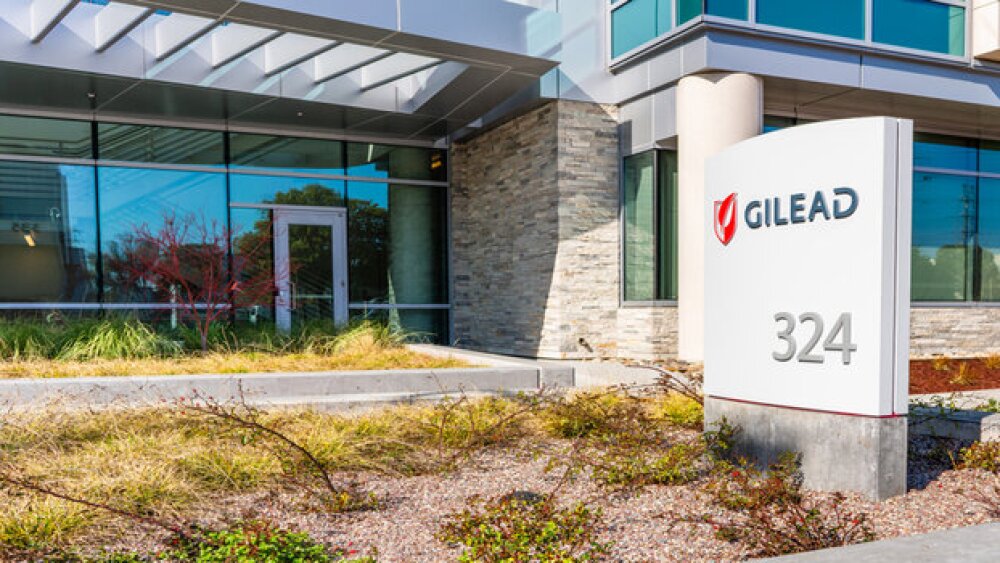Months after the FDA lifted its partial hold on their Phase II multiple myeloma program, Kite and Arcellx are expanding their existing development and commercialization collaboration in the blood cancer space.
Pictured: Gilead signage outside its office in California/iStock, Sundry Photography
Gilead subsidiary Kite on Wednesday broadened the scope of its existing collaboration with Arcellx. The two companies will now also evaluate the investigational cell therapy CART-ddBCMA, originally being developed for multiple myeloma, as a treatment for lymphomas.
Kite also exercised its option to negotiate a license for an additional multiple myeloma program from Arcellx, dubbed ACLX-001.
Under the terms of the expanded deal, Kite will make an upfront, non-dilutive payment of $85 million once the transaction is closed. The Gilead subsidiary has also pledged potential milestone payments, including the advancement the lymphoma program for CART-ddBCMA. The partners anticipate to close the deal around the year’s end, pending regulatory clearances and other customary conditions.
Arcellx will also receive a $200 million equity investment from Kite, which will purchase 3,242,542 shares of the Maryland biotech’s common stock. The funding will extend Arcellx’s runway into 2027 and will give Gilead approximately 13% ownership of the company.
In its third-quarter financial report, Arcellx had $482.7 million in cash, cash equivalents and marketable securities—which at the time, the company said would be enough to support its operations into 2026.
The multiple myeloma program of CART-ddBCMA has been a boon for Kite, allowing it “to enter an area of high unmet need and bring a new, potentially best-in-class cell therapy to patients,” Kite’s Executive Vice President Cindy Perettie said in a statement.
The expanded collaboration with Arcellx will not only help the companies push CART-ddBCMA into new indications, but will also help Kite “bolster our pipeline in multiple myeloma, as well as access opportunities in lymphoma,” Perettie said.
Kite and Arcellx first entered into their strategic partnership in December 2022. For $225 million upfront, a $100 million equity investment and up to $3.9 billion in contingent considerations, Kite bought the right to co-develop and co-commercialize CART-ddBCMA, an investigational cell therapy made up of genetically modified autologous T cells that target multiple myeloma.
The partners are currently running the Phase II iMMagine-1 trial, testing CART-ddBCMA in more than 100 patients with relapsed or refractory multiple myeloma. In June 2023, the FDA slapped a partial clinical hold on the mid-stage study after one patient died following treatment with the cell therapy.
The company’s investigations would later reveal that the patient was ineligible for CART-ddBCMA and should not have received the treatment per the trial protocol. The complications that arose were also managed in conflict with iMMagine-1’s protocol. The FDA lifted its regulatory pause in August 2023 after Arcellx retrained its clinical sites.
Tristan Manalac is an independent science writer based in Metro Manila, Philippines. He can be reached at tristan@tristanmanalac.com or tristan.manalac@biospace.com.






